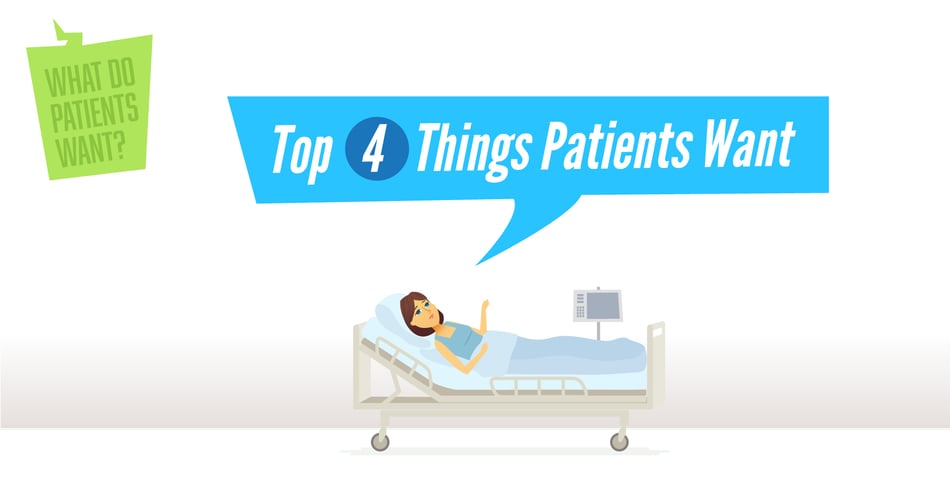The Top 4 Things Patients Want

Think back to the last time you or a loved one was a patient in a hospital or healthcare facility. What things do you remember most? Is it the stress about health and recovery? Maybe you remember the frustration of trying to get answers or understanding what was going on? Or perhaps you remember a constant worry about whether the hospital was clean enough to prevent an infection? If any or all of these are familiar, you are not alone. A study investigated what patients consider the most important aspects of a quality hospital, and as this post will reveal, how infection prevention is their top concern.
By far the largest national survey of patient satisfaction is the Hospital Consumer Assessment of Healthcare Providers and Systems (HCAHPS), a program operated by the Centers for Medicare and Medicaid Services (CMS). While this survey provides patients an opportunity to share their thoughts on a broad array of topics, it also has some weaknesses. It was created based on focus groups of relatively well-educated Medicaid patients, resulting in a very long survey that requires a high literacy level. In an effort to learn what more typical patients want from their hospital, the study investigators formed focus groups made up of English and non-English speakers from a variety of socioeconomic backgrounds. The results uncovered some topics that are not a part of HCAHPS, but also reinforced the top concerns. Here are the results:
#1 A clean hospital environment. Patient focus groups overwhelmingly placed the cleanliness, and therefore, the safety, of the hospital environment as their first priority. They didn't want to get even sicker due to an unsafe and contaminated environment.
#2 Whole-person care. We all want to be treated as a person, not a number. Focus groups in this study agreed: They wanted to be involved in health decisions with patient healthcare staff that took the time to listen to them and demonstrated that they cared about them as a person.
#3 Effective communication. Patients want to know about the steps being taken for their treatment. They want healthcare workers to explain what they are doing and why in language they can understand. They also want their healthcare team to communicate with each other so that the "right hand knows what the left hand is doing."
#4 Responsiveness. Beyond simply responding to a call button (which is also important), patients share that they want their caregivers to be patient when responding, ready to answer questions, and not appear to be bothered. Many patients shared that they don't feel they can ask for help because they already feel like a burden.
Every healthcare worker wants to provide this ideal experience for every patient. They want enough time to listen to each patient, explain in detail, and provide comfort. In fact, healthcare workers in this study listed the same priorities as their patients: They know what patients want, but struggle to make that happen due to time constraints, burn-out, cognitive load, and systemic factors (such as scheduling).
The top concern, a clean and safe environment, could be provided to every patient without placing additional strain on time, work load, and systems already in place. A clean environment starts with clean patient surfaces, and preventive biocidal materials are one way to ensure that the patient surroundings are not dangerously contaminated between cleanings. These materials, which include copper alloys and copper-infused polymers, continuously and actively kill disease-causing pathogens all day long, even when contaminated over and over again. Not only do they keep the environment clean, they also communicate (3#) to patients that the hospital cares about them (#2) enough to invest in material that keep them safe without taking away staff time and attention (#4). What other investment could fulfill so many patient needs at one time?
What do you want as a patient? Share your priorities in the comments below!
![EOScu Logo - Dark - Outlined [07182023]-01](https://blog.eoscu.com/hubfs/Eoscu_June2024/Images/EOScu%20Logo%20-%20Dark%20-%20Outlined%20%5B07182023%5D-01.svg)




